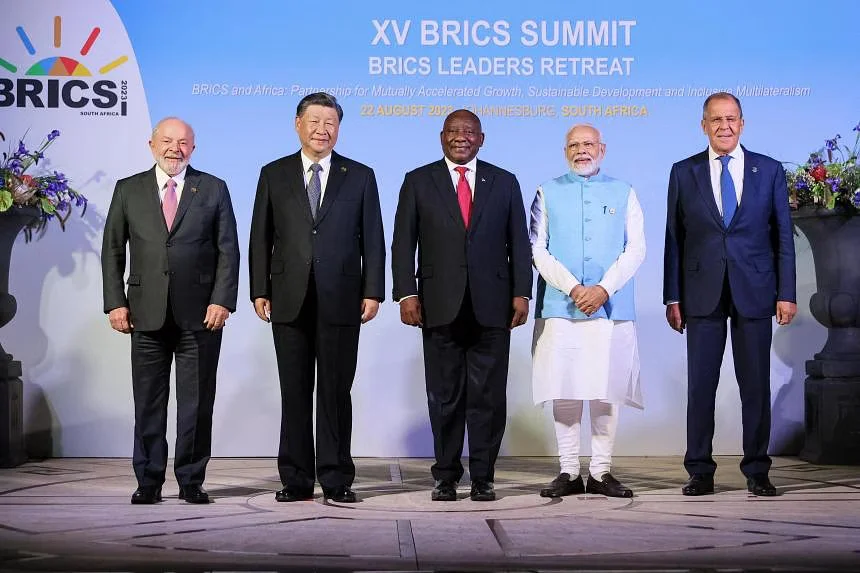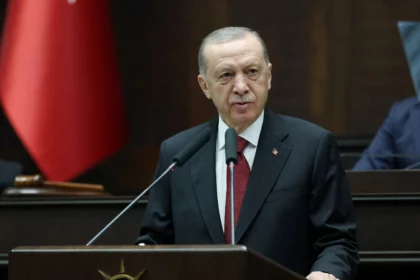Leaders of the BRICS group, composed of major emerging economies – China, Russia, South Africa, Brazil, and India – recently convened to chart the collective trajectory of the alliance. However, the meeting was underscored by notable divisions, mainly emanating from the efforts of China and Russia to bolster BRICS’ unity amidst a backdrop of escalating global tensions. The ongoing Ukraine conflict and the escalating rivalry between China and the United States have intensified these tensions.
In the midst of mounting global discord triggered by the Ukraine war and the deepening China-US rivalry, China and Russia are making deliberate moves to strengthen the foundations of the BRICS alliance. The virtual presence of Russian President Vladimir Putin during the discussions serves as a symbolic gesture, signaling Russia’s commitment to cementing the alliance’s influence. The summit, spanning from August 22 to 24 in Johannesburg, carries the ambitious aim of positioning BRICS as a substantial counterbalance to the domination of Western-driven global institutions.
While Chinese President Xi Jinping was not physically present, his words resonated with significance, highlighting the pivotal role of the decisions made during the summit in shaping historical trajectories. However, the absence of Xi Jinping from the proceedings, despite his prior meeting with South African host Cyril Ramaphosa, raises intriguing questions.
Within the BRICS coalition, diverse viewpoints have surfaced. Brazilian President Luiz Inacio Lula da Silva advocates for internal cohesion over direct confrontation with entities like the G7, G20, or the United States.
The discussions transcend unity to encompass the practical aspect of utilizing local currencies from member nations for trade and financial transactions, aimed at diminishing reliance on the US dollar. Through a pre-recorded message, Russia’s President Putin emphasized the ongoing shift away from dollar dependence. While Brazil has floated the idea of a shared BRICS currency, the South African organizers chose not to include this topic in the official agenda.
The challenge of heterogeneity within BRICS is undeniable. It spans from China’s robust economic stature to South Africa’s relative size. Amid Russia’s diplomatic overtures towards BRICS members, it’s intriguing to note that India and Brazil have leaned towards Western associations. Further complicating the decision-making dynamics are the longstanding border disputes between India and China.
Jake Sullivan, the White House National Security Advisor, does not view BRICS as a geopolitical rival to the United States, citing the divergent viewpoints and perspectives among member nations on critical issues.
Expansion, a persistent agenda for China, promises to amplify BRICS’ collective influence. However, India approaches the idea cautiously, while Brazil harbors concerns about dilution of its impact. As the BRICS leaders navigate these intricate dynamics, the outcomes of their discussions can significantly shape the future direction of this influential alliance on the global stage.




